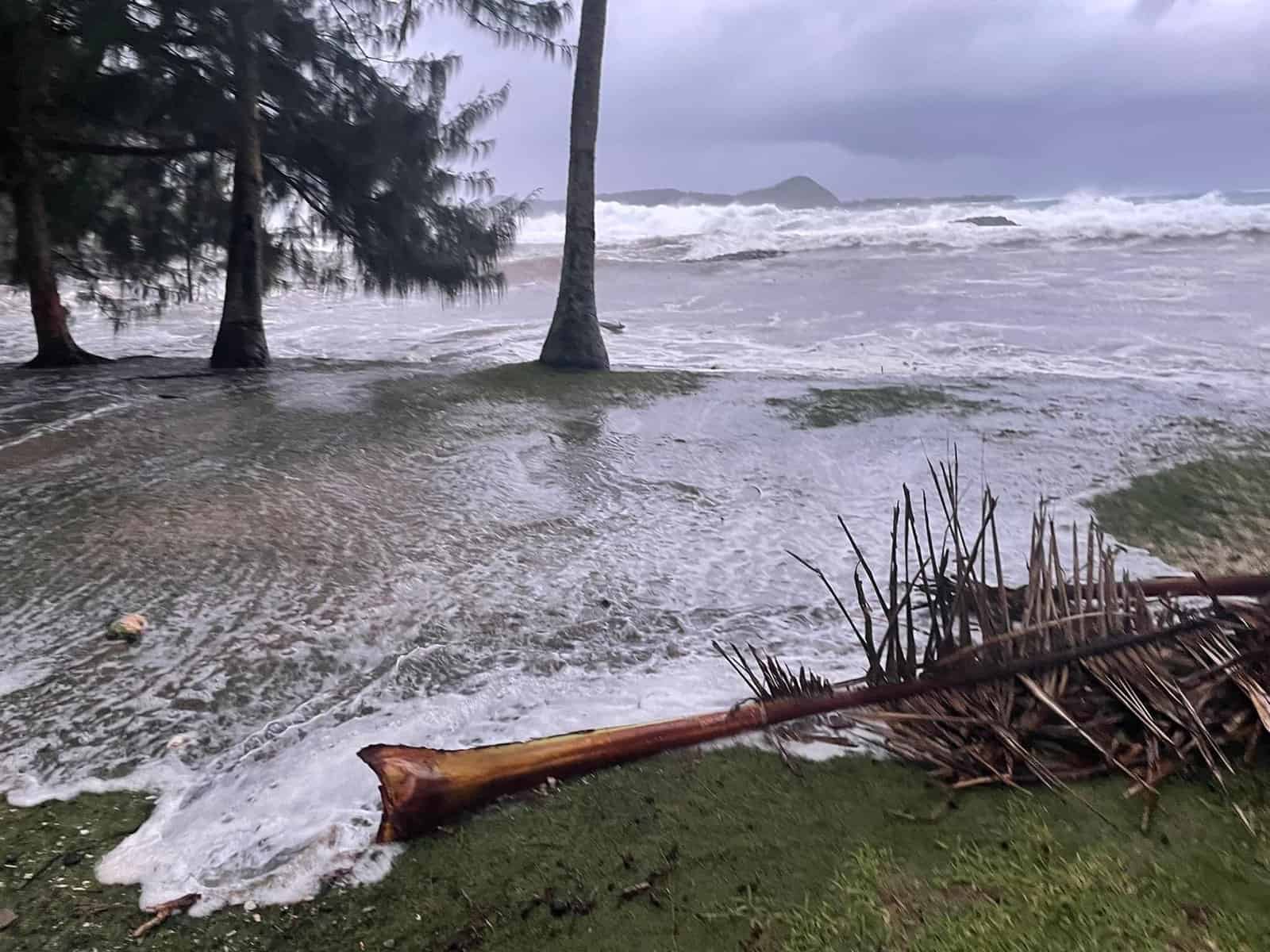The full impact of huge sea swells across American Samoa and the Cook Islands is only starting to come to light.
Severe weather conditions in American Samoa have resulted in damage to roads, infrastructure, property and coastal villages.
A state of emergency remains in place for American Samoa after severe weather conditions as waves dumped rocks and debris on roads and beaches stranding vehicles on the east coast of Tutuila and swamping homes, a church, a school and the generators on the island of Aunu’u.
Several sections of the road were not accessible on the eastern side of Tutuila while Fatumafuti was covered with sand and debris and huge waves washed onto vehicles stalling them.
Bulldozers were at work clearing the highway and Utulei Beach was littered with plastic bottles, wrappings and rocks.
Residents of east side villages said this was the worse they had seen as far as waves crashing into the road.
Pago Pago International Airport remains closed after waves damaged the runway. The Hawaiian Airlines flight scheduled for Thursday night was cancelled and will resume as soon as the runway can reopen safely which was hoped to be Friday afternoon local time.
American Samoa’s Emergency Operations Centre has been activated and will be standing by to assist the public.
“I appreciate your cooperation during this untimely event, and I ask that you remain vigilant and keep your families safe,” Governor Lemanu said.
Meanwhile, Cook Islands Prime Minister Mark Brown is appealing for people to report damage to their homes and businesses on Rarotonga and the Pa Enua outer islands after two days of 4.5 metre swells pounding the southern coasts.
“People will recall the flooding that happened a couple of years ago that affected homes in Avatiu and Arorangi. At that time government assisted affected homes with loss of appliances, and flood damage etc. Soon after that we established a fund for Emergency Support in the event of another flood. We stand ready to assist those households that have been damaged,” Brown said.
“The first thing to do is to assess the damage and how much will be needed.”
Brown said the government was ready with emergency support and he was particularly concerned for tourism providers who were just starting to get back on their feet with record numbers of visitors because of New Zealand’s school holidays.
“I feel for our visitor industry, which is just starting to get back on its feet after more two years of lost income and opportunity, brought on by the COVID pandemic and the border closures it caused.”
Resorts, homes and businesses on the south coast of Rarotonga have suffered substantial damage. Swells driven by a high pressure weather event near New Zealand have crashed into many beachside resorts, visitor accommodation properties and private homes on the southern and west side of the island, he said.
“But, we have faced these challenges before and we will bounce back again,” he said.
